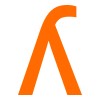
Singing for People With Aphasia
AphasiaTo undertake a pilot study that will evaluate the feasibility and acceptability of procedures to inform the design and delivery of a definitive RCT of SPA (which would assess the clinical and cost effectiveness of SPA for people with aphasia)

Improving Electronic Written Communication in Aphasia
AphasiaPeople with aphasia have difficulty with writing and often struggle to use electronic communication that connects people to one another. The goal of this project is to evaluate the extent to which a novel treatment (T-WRITE) improves written language function and the use of text messaging; we also evaluate whether there are subsequent positive effects on the participant's social connectedness and ultimately health-related quality of life (HRQOL). T-WRITE involves choral reading and repeated writing of sentences via texting. Participants work intensively and independently at home on a laptop computer. A virtual therapist directs the participant to practice copying and independently writing phrases and short sentences using the typing feature on a cellular phone. The specific objective of this randomized clinical trial is to compare T-WRITE to ORLA+WTG, a similar treatment that targets written expression using handwriting.

Cerebellar Transcranial Direct Current Stimulation and Aphasia Treatment
StrokePeople with post-stroke aphasia are left with some degree of chronic deficit for which current rehabilitative treatments are variably effective. This study investigates the behavioral and neural effects of multiple consecutive cerebellar tDCS sessions coupled with computerized naming therapy in stroke survivors with aphasia.

Web-Based Treatment for Aphasia
AphasiaThis prospective randomized clinical trial implements an innovative broadband web-based treatment program for individuals with chronic aphasia, and evaluates its efficacy. The treatment, Oral Reading for Language in Aphasia (ORLA), has been shown to be efficacious when provided by a speech-language pathologist. The treatment has been computerized and the current version of ORLA uses state-of-the-art virtual therapist technology that allows the individual with aphasia to read aloud, and ultimately speak, sentences at the same time as the words are produced by a perceptive, life-like, animated computer agent, using visible speech. In this clinical trial, ORLA treatment is delivered via the internet and outcomes are compared to a placebo computer treatment.

Spaced Retrieval as Treatment for Aphasia
AphasiaAcquired1 moreSpaced Repetition training has been found to be more effective than massed repetition for individuals with aphasia. This study seeks to examine the relative efficiency of three kinds of spacing for picture-naming training: traditional random presentation, non-adaptive spaced repetition, and adaptive spaced repetition.

The Effect of Non-invasive Brian Stimulation on Language Production in Healthy Older Adults
Language DisordersAphasia1 moreThe use of non-invasive brain stimulation techniques like transcranial direct-current stimulation (tDCS) for rehabilitation of language is a growing field that needs further studies to determine how best it can be used to enhance treatment outcomes. It has been shown that tDCS can improve language performance in healthy and brain-injured individuals such as increased naming accuracy. However, at present, it is not known what effect tDCS has on higher-level language skills like discourse production (i.e. story telling, giving instructions) in healthy, older speakers. Therefore, the aim of this study is to investigate in healthy older adults, the effect of tDCS on discourse production as well as the ideal tDCS electrode placement for improving language at the discourse level. It is hypothesised that tDCS will result in greater language changes and improvements during discourse production compared to no stimulation.

MIRAA - Implementation of Intensive Rehabilitation of Aphasia and/or Apraxia of Speech in Swedish...
AphasiaApraxia of Speech1 morePositive outcomes have been shown following intensive treatment of speech and/or language impairment post stroke, but how to design intensive treatment programs to achieve optimal recovery and neuroplasticity changes needs to be further researched. The purpose of the MIRAA (Multimodal Intensive Rehabilitation of Aphasia and Apraxia of Speech) project is to study feasibility of intensive intervention for acquired aphasia and apraxia of speech (AOS) after stroke in the regular Swedish health-care according to the updated national guidelines from the Swedish National Board of Health and Welfare.

Transcranial Direct Current Stimulation Investigations of Language Processing in Aphasia
AphasiaThis study proposes to use transcranial direct current stimulation (tDCS) in patients with chronic strokes and aphasia in order to characterize and enhance the mechanisms of language recovery following injury. Prior to enrollment subjects will undergo six "site-finding' sessions involving various placements of positively charged (anodal), negatively charged (cathodal), and sham stimulation over the damaged and intact hemispheres of the brain, along with standard tests of language. Subjects who are found to experience a transient improvement in language ability in this initial experiment will participate in an incomplete cross-over design study to determine if 10 sessions of tDCS stimulation lead to prolonged language benefit when delivered to the hemisphere and at the polarity shown previously to respond best to stimulation.

Remote Neurobased Approach to Aphasia Therapy
AphasiaBroca7 moreThe purpose of this study is the development and validation of an evidence-based mobile application, based on the core premises of Intensive Language-Action Therapy (ILAT) for aphasia, for the training and improvement of chronic aphasia patients administered at the patient's home. It aims at testing the beneficial effect on the linguistic performance (as assessed by the Barcelona and CAL clinical tests) counteracting learned non-use and the usability of the application as a tool for training once discharged from hospital care.

Apraxia of Speech: Comparison of EPG Treatment (Tx) and Sound Production Treatment (SPT)
Apraxia of SpeechAphasia2 moreThe purpose of the proposed research is to examine the effects of two treatment approaches on speech production involving speakers with chronic apraxia of speech (AOS) and aphasia. The planned investigation is designed to examine the acquisition, maintenance and generalization effects of each treatment. One approach, electropalatography (EPG) uses visual biofeedback in conjunction with articulatory-kinematic treatment and the other approach, sound production treatment (SPT) is one of the most systematically studied articulatory-kinematic treatments for AOS.
